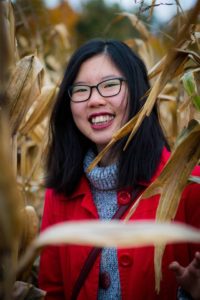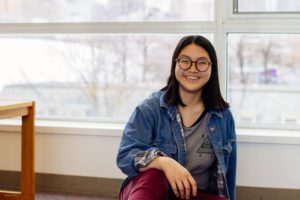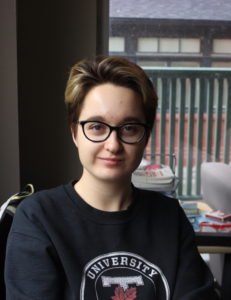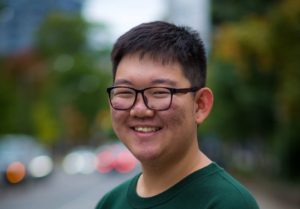Intersections: Identity & Intersectionality
INtersections is an initiative by the ICSS Equity and Outreach Portfolio, curated by Associate, Jeruby Retnakanthan. Meant to provide a platform for Innis’ diverse student body to engage with the most pressing equity issues experienced in our communities, INtersections is published every month on the Equity and Outreach and Innis Inspirations Facebook pages and in each edition of the Innis Herald.
Michelle Zhang, ICSS Equity & Outreach Director:

“To me identity is how you relate yourself to the world, it’s how you relate yourself to different social groups and your environment. It influences your perspective on the world and how you fit into that world. Coming from a social science perspective, I’m doing a lot of work on group studies and ethnic conflict in my classes and it’s really interesting to see how people’s beliefs of who they are and where they fit in influences their behaviour. I’m a firm believer in the subjectivity of experience and that truth itself is subjective, and I think that intersectionality and the dialogue around it really acknowledges that fact – that no two peoples’ experiences of one thing are the same. And I think that’s really important to address and acknowledge because if we’re trying to make the world a better place, then we need to be accommodating. We can’t just find some archetypal person and tailor the world to their needs, because one size does not fit all. Intersectionality reflects the individualization of reality and how we experience it and how we understand it, and it ties in all of an individual’s past experiences, expectations, and socializations, in a unique way that sets them apart from other people.”
Megan Pham-Quan, ICSS Equity & Outreach Director:

“I think that your identity compounds who you are and what experiences you’ve had, as well as what context you come from. So that extends it back into the past, and you can look backwards at all the things that made you who you are, your accomplishments and your setbacks. Of course, this includes things that are out of your control as well, so obstacles based on elements of your identity such as race, or gender, or sexual orientation. But identity also shapes your perspective, right? Identity shapes your plans for the future, it shapes how you look out into the world and decide what you want to do, and it also shapes how easy or how difficult it will be to accomplish those plans. Speaking from my personal experience, I’ve felt very welcomed in my identity at Innis college. It’s a small community, but for such a small college there’s a lot of representation within student leadership and the clubs and communities that you can join. That being said, I think being small has it’s setbacks. Recently we’ve been working with Woodsworth and they have a much larger fleshed-out equity committee, as well as organizations that tailor to specific identities, which we have too with INpride. I definitely think we could have much more representation in that sense, but I’ve still always felt welcomed at Innis regardless.”
Alex Edwards, INpride President:

“Identity is complicated for me. I’ve always sort of struggled with my identity and where I fit it, being bisexual and also with my gender identity – I still struggle with that. But identity sort of… allows community, I feel. It’s very important to make connections. I feel like sometimes people place too much emphasis on identity, but I also think it’s important for community building. Of course, I’ve struggled with my place at university – ‘cause it’s so big! So being a part of Innis and being a part of INpride in particular, helps a lot. INpride is very important to me because it helps me connect with people like me in the university and the Innis community in general, which is super important! Especially as somebody who doesn’t live in residence anymore, I still get that connection to a community through INpride. When it comes to intersectionality, I think a lot of different people have different ideas of what it really means… To me, it means ensuring that a lot of different people are acknowledged and included. I’m very aware of myself being a white person, and I feel like that’s very important to acknowledge in terms of my position of power in a student leadership role. So to me, intersectionality is acknowledging where you stand and how much power you hold, but also how you can include other people.”

Tony Niu, International Student Representative
“Identity is the way you perceive yourself, the way you see yourself as a person… For example, if you’re talking about the LGBTQ community, there’s a spectrum and people can see where they fit in. Innis, as a college helps me feel comfortable in my identity because everybody respects each other and we’re all open and comfortable with our identities. At Innis, I don’t feel like people are being excluded or like they’re the outsider. Respect is the most important thing!”
